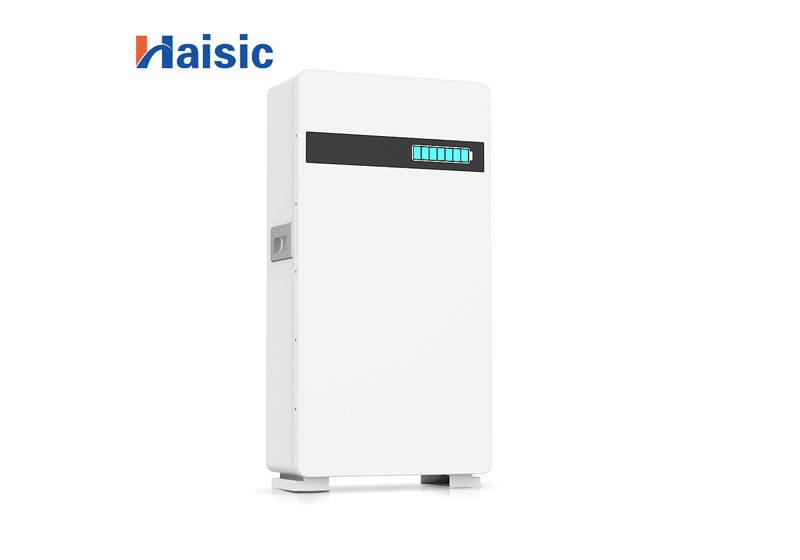Email format error
Email cannot be empty
Email already exists
6-20 characters(letters plus numbers only)
The password is inconsistent
Email format error
Email cannot be empty
Email does not exist
6-20 characters(letters plus numbers only)
The password is inconsistent


The demand for efficient and reliable energy storage solutions has been on the rise in recent years. One such solution that has gained significant popularity is the lithium battery 48V 200Ah LiFePO4 battery. This blog post aims to explore the features, benefits, and applications of this advanced energy storage technology. So, let’s dive in!
Understanding Lithium Battery Technology
1.1 Introduction to Lithium Batteries:
Lithium batteries have revolutionized the energy storage industry due to their high energy density, long cycle life, and lightweight design. They are widely used in various applications, ranging from portable electronics to electric vehicles.
1.2 LiFePO4 Battery Chemistry:
LiFePO4, or lithium iron phosphate, is a type of lithium battery chemistry known for its stability, safety, and high thermal tolerance. It offers excellent performance in terms of energy density, cycle life, and fast charging capabilities.
1.3 Advantages of LiFePO4 Batteries:
LiFePO4 batteries have several advantages over other lithium battery chemistries, including enhanced safety, longer cycle life, and better thermal stability. They are also more environmentally friendly and have a lower risk of thermal runaway.
Lithium Battery 48V 200Ah: An Overview
2.1 Key Specifications:
The lithium battery 48V 200Ah LiFePO4 battery is designed to provide a high-capacity energy storage solution for various applications. It operates at a nominal voltage of 48 volts and has a capacity of 200 ampere-hours.
2.2 Design and Construction:
These batteries are typically constructed using high-quality LiFePO4 cells, which are connected in series and parallel to achieve the desired voltage and capacity. The battery pack is enclosed in a robust and durable casing to ensure protection against external factors.
2.3 Safety Features:
Lithium battery 48V 200Ah LiFePO4 batteries are equipped with advanced safety features, including overcharge protection, over-discharge protection, short circuit protection, and thermal management systems. These features ensure safe and reliable operation.
Benefits of Lithium Battery 48V 200Ah LiFePO4 Battery
3.1 High Energy Density:
The high energy density of LiFePO4 batteries allows for more energy storage in a compact size. This makes them ideal for applications where space is limited, such as electric vehicles and renewable energy systems.
3.2 Long Cycle Life:
LiFePO4 batteries have an impressive cycle life, typically exceeding 2000 cycles. This means they can be charged and discharged thousands of times without significant degradation in performance, making them a cost-effective solution in the long run.
3.3 Fast Charging Capability:
One of the key advantages of LiFePO4 batteries is their ability to charge at a faster rate compared to other battery chemistries. This reduces downtime and increases the overall efficiency of energy storage systems.
3.4 Lightweight and Compact Design:
The lightweight and compact design of lithium battery 48V 200Ah LiFePO4 batteries make them easy to transport and install. This is particularly beneficial in applications where weight and size are critical factors, such as electric vehicles and portable power systems.
3.5 Enhanced Safety Features:
LiFePO4 batteries are known for their superior safety features. They have a lower risk of thermal runaway, which reduces the chances of fire or explosion. Additionally, the advanced battery management systems ensure optimal performance and protection.
Applications of Lithium Battery 48V 200Ah LiFePO4 Battery
4.1 Renewable Energy Systems:
Lithium battery 48V 200Ah LiFePO4 batteries are widely used in renewable energy systems, such as solar and wind power installations. They store excess energy generated during peak production periods and release it during low production periods, ensuring a stable and reliable power supply.
4.2 Electric Vehicles:
The high energy density and fast charging capabilities of LiFePO4 batteries make them an ideal choice for electric vehicles. They provide long-range capabilities, shorter charging times, and improved overall performance compared to traditional lead-acid batteries.
4.3 Telecommunications:
Telecommunication towers require reliable backup power solutions to ensure uninterrupted communication services. Lithium battery 48V 200Ah LiFePO4 batteries offer a compact and efficient energy storage solution for these critical applications.
4.4 Marine and RV Applications:
The lightweight and compact design of LiFePO4 batteries make them suitable for marine and RV applications. They provide reliable power for onboard systems, such as lighting, refrigeration, and navigation, without adding excessive weight.
4.5 Industrial Backup Power:
Industries often require backup power solutions to prevent downtime and ensure continuous operations. Lithium battery 48V 200Ah LiFePO4 batteries offer a reliable and efficient energy storage solution for industrial backup power applications.
Installation and Maintenance Guidelines on Lithium Battery 48V 200Ah LiFePO4 Battery
5.1 Proper Installation Procedures:
Proper installation of lithium battery 48V 200Ah LiFePO4 batteries is crucial for optimal performance and safety. It is recommended to follow the manufacturer’s guidelines and consult with professionals for installation in complex systems.
5.2 Charging and Discharging Recommendations:
LiFePO4 batteries have specific charging and discharging requirements to maximize their lifespan and performance. It is important to use compatible chargers and avoid overcharging or deep discharging the batteries.
5.3 Maintenance Tips for Longevity:
Regular maintenance is essential to ensure the longevity of lithium battery 48V 200Ah LiFePO4 batteries. This includes monitoring the battery’s state of charge, inspecting for any physical damage, and keeping the battery clean and free from contaminants.
Comparison with Other Battery Technologies
6.1 Lithium-Ion Batteries:
LiFePO4 batteries offer several advantages over lithium-ion batteries, including better thermal stability, longer cycle life, and enhanced safety features. However, lithium-ion batteries have a higher energy density and are more commonly used in consumer electronics.
6.2 Lead-Acid Batteries:
Compared to lead-acid batteries, LiFePO4 batteries have a significantly longer cycle life, higher energy density, and faster charging capabilities. They also require less maintenance and have a lower risk of environmental pollution.
6.3 Nickel-Cadmium Batteries:
LiFePO4 batteries are considered a safer and more environmentally friendly alternative to nickel-cadmium batteries. They have a longer cycle life, higher energy density, and do not contain toxic materials like cadmium.
Future Trends and Developments for Lithium Battery 48V 200Ah LiFePO4 Battery
7.1 Advancements in Battery Management Systems:
Battery management systems (BMS) play a crucial role in monitoring and controlling the performance of LiFePO4 batteries. Future advancements in BMS technology are expected to further enhance the efficiency, safety, and overall performance of these batteries.
7.2 Integration with Smart Grids:
The integration of LiFePO4 batteries with smart grids is a promising trend in the energy storage industry. This allows for better management of energy flow, load balancing, and grid stability, ultimately leading to a more sustainable and efficient energy infrastructure.
7.3 Recycling and Sustainability Initiatives:
As the demand for lithium batteries continues to grow, recycling and sustainability initiatives are becoming increasingly important. Efforts are being made to develop efficient recycling processes and promote the responsible disposal of lithium batteries to minimize environmental impact.
Conclusion:
The lithium battery 48V 200Ah LiFePO4 battery offers a reliable, efficient, and safe energy storage solution for a wide range of applications. Its high energy density, long cycle life, fast charging capabilities, and enhanced safety features make it a preferred choice in the energy storage industry. As technology continues to advance, we can expect further improvements in performance, efficiency, and sustainability, paving the way for a greener and more sustainable future.